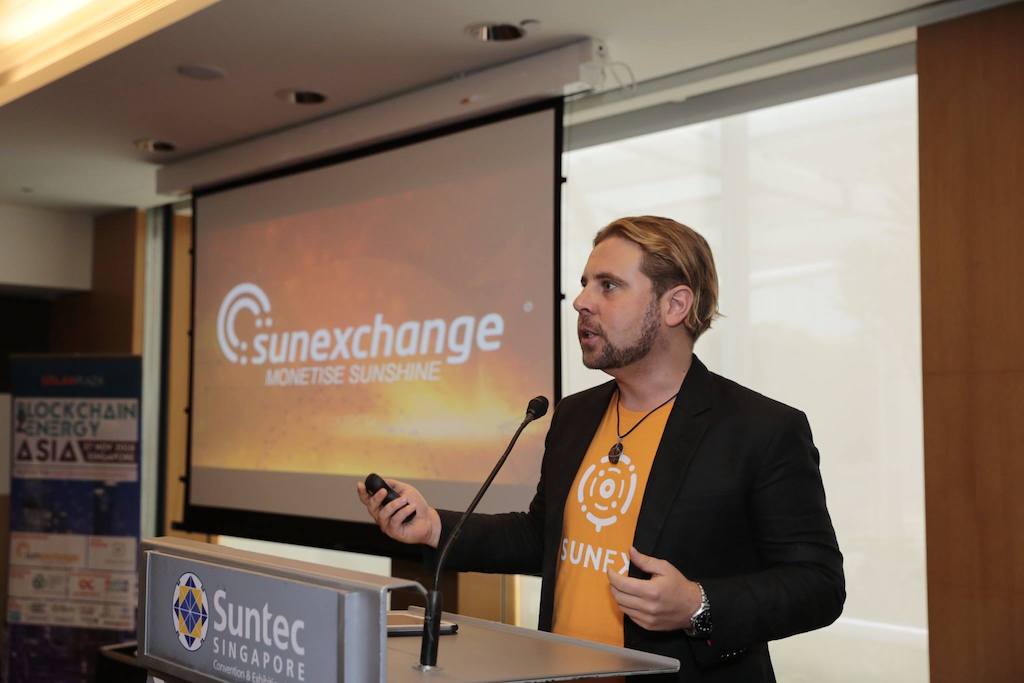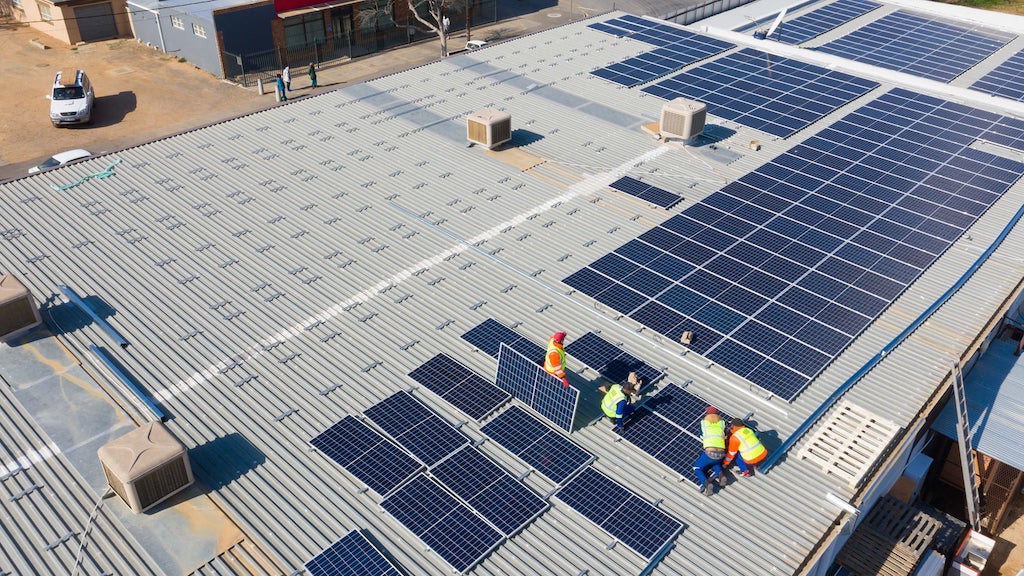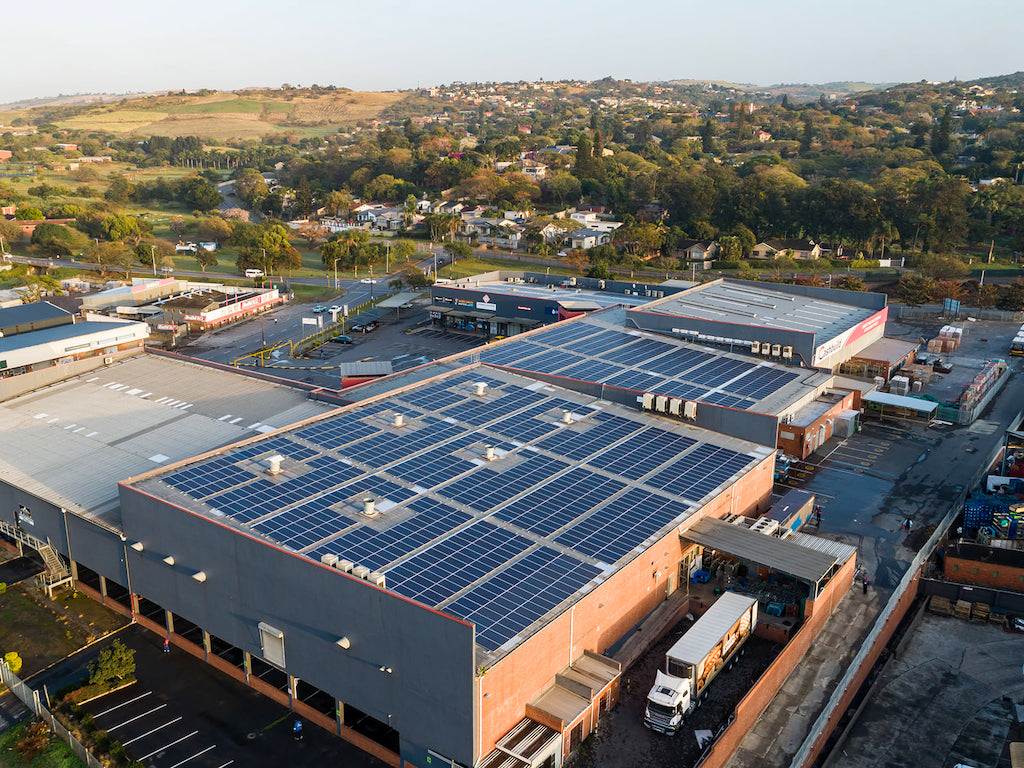4 Mins Read
Want to pocket a few extra bucks while making a positive impact on the planet? There’s a platform that does exactly that, helping its users earn solar-powered dollars through its unique financing scheme. Called Sun Exchange, the digital marketplace has already facilitated the construction of dozens of renewable energy projects across Southern Africa, all the while providing its members a climate-friendly income stream.
Yes, we can actually make a difference with our dollars while doing something good for the environment. That’s the whole concept behind startup Sun Exchange, which operates as a global solar leasing platform for people to buy solar cells in remote locations. These cells, which make up solar panels, are then leased to projects in emerging markets in South Africa.
Each cell costs as little as US$5 for members to purchase, and once they are leased out, buyers get monthly payments based on how much clean electricity has been used by businesses and schools who are renting them. Coming in both fiat currency and the cryptocurrency bitcoin, the payments members get can rack up, with current returns ranging from anywhere between 11% to 17% depending on which project the cells go to.
It’s an impressive idea that founder Abraham Cambridge came up with when he landed in South Africa seven years ago as a solar engineering consultant. Hailing from Britain, one of the first things he noticed was the sunny weather – but no panels.
“When I got here, I realised there were no solar panels on any of the roofs,” Cambridge told CNN.

[This] makes owning a solar panel something that’s no longer reserved for the upper middle class, but something that is accessible to everybody.
Abraham Cambridge, Founder, Sun Exchange
One reason for that was the lack of subsidies available to kickstart large-scale solar power projects in the region, unlike the funding that similar commercial facilities tend to get in the U.S. and Europe. Sun Exchange was built to address this gap in financing, while also democratising the process.
“Ten years ago, the only option of owning solar panels was to own a whole system on your roof and that’s a very high barrier to entry. [This] makes owning a solar panel something that’s no longer reserved for the upper middle class, but something that is accessible to everybody.”
By giving the option for cell owners to get their payments in bitcoin also helps make its “earn with purpose” concept as international and accessible as possible. “We’ve got a truly global user base purely because of the financial system we’re using,” Cambridge explained.
Read: Why crypto proponents believe that digital currencies will drive renewable revolution
Organisations and companies that use Sun Exchange to lease out the cells don’t even need to pay anything to have a solar plant installed, only paying for the electricity that they use over the lease period of 20 years. It gives them a viable way to reduce their costs, all the while making a huge dent on their carbon footprint.

Ten years ago, the only option of owning solar panels was to own a whole system on your roof and that’s a very high barrier to entry.
Abraham Cambridge, Founder, Sun Exchange
The platform also says that there’s a societal impact that comes with its unique solar financing scheme. Schools that use Sun Exchange to install solar panels, for instance, give their students and the wider community an opportunity to learn about renewable energy, the technology behind it and begin thinking about sustainability. Other organisations that have used Sun Exchange include wildlife sanctuaries and even grocery shops.
So far, the platform boasts more than 20,000 members spread across 170 countries globally, and has managed to facilitate the construction of nearly 40 solar projects across Southern Africa.
Sun Exchange manages to stay afloat by adding a percentage to the cost of each solar cell, and charges projects a service fee from the gross lease payments. It’s also receiving funding through crowdfunding projects, giving people the chance to gain equity in the firm as it seeks to expand its operations to cover other African countries, including Ghana, Kenya and Tanzania.
While conscious spending has become a big trend taking over fashion and beauty, it’s been less pronounced in the financial sector, where climate-friendly financial services still remain few and far between, though this is quickly changing.
Alongside Sun Exchange solar leasing service, other platforms that have emerged to fill in the gap include sustainable neobank Aspiration, which has been backed by the likes of Robert Downey Jr., and Creed, the new mobile app that helps users manage their money while tracking their carbon footprint and offsetting emissions.
All images courtesy of Sun Exchange.




